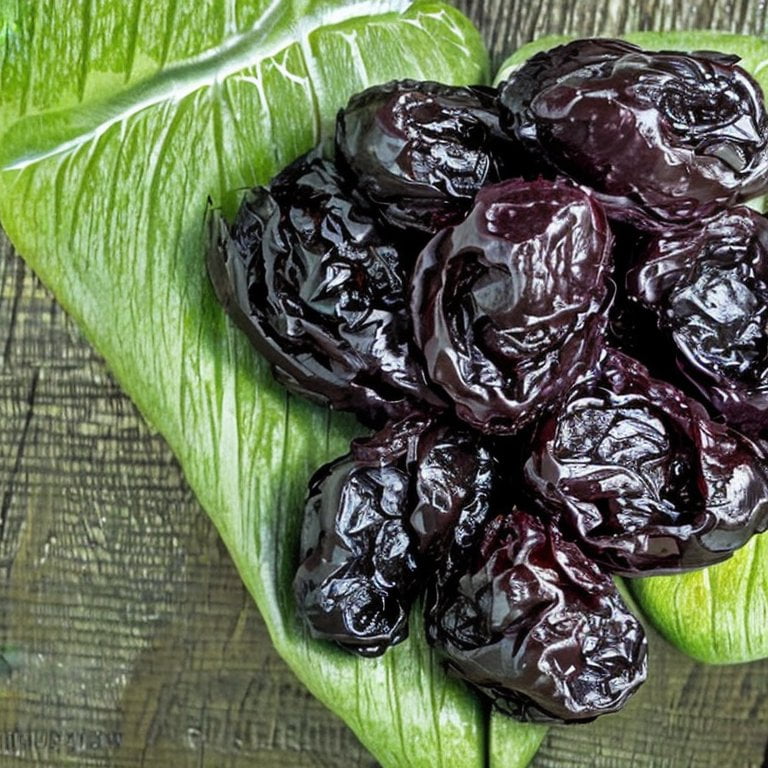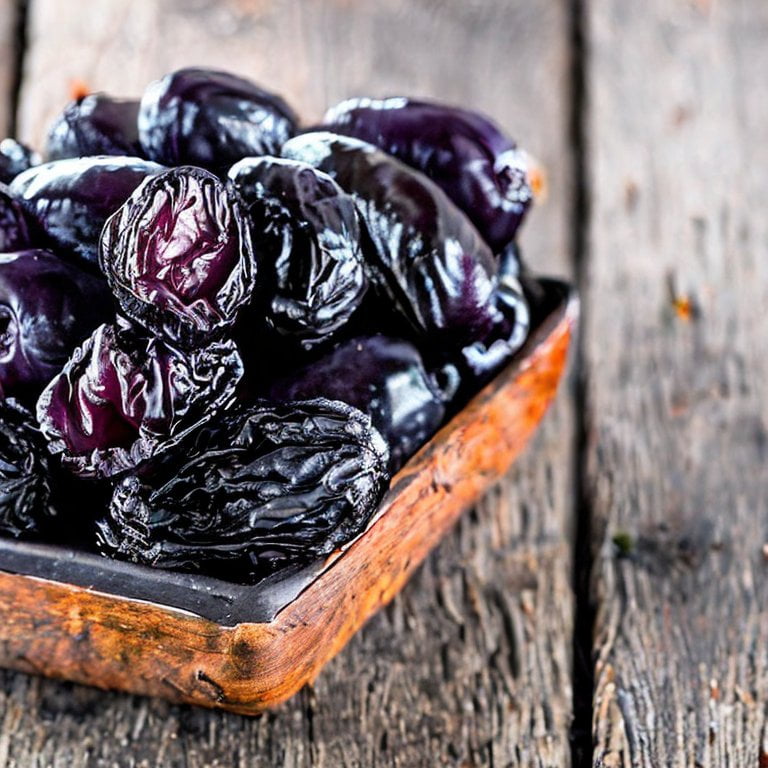
Prunes, also known as dried plums, have been long known for their ability to alleviate constipation. They are a rich source of fiber and sorbitol, which helps to promote bowel movements and ease constipation. However, one question that often arises is how many prunes to eat for constipation.
In this post, we will explore the benefits of prunes for constipation and provide some guidelines on how many prunes to eat.
Table of Contents
- Prunes for Constipation
- How Many Prunes Should You Eat for Constipation?
- Other Remedies for Constipation
- Final Thoughts
Prunes for Constipation
Constipation is a common digestive problem that affects millions of people worldwide. It is characterized by infrequent bowel movements, hard and dry stools, and difficulty in passing stools. The causes of constipation can vary from a lack of fiber in the diet, dehydration, stress, and even certain medications.
One effective way to alleviate constipation is by incorporating more fiber into the diet. Fiber is a type of carbohydrate that is not digested by the body and passes through the digestive system intact. It adds bulk to the stool and helps to promote regular bowel movements. Prunes are a great source of fiber, with each prune containing about 1 gram of fiber.

In addition to fiber, prunes also contain sorbitol, a natural sugar alcohol. Sorbitol has a laxative effect on the body, helping to soften the stool and promote bowel movements. It is also known to increase the amount of water in the stool, making it easier to pass.
How Many Prunes Should You Eat for Constipation?
So, how many prunes should you eat for constipation? The answer is not straightforward as it can vary from person to person. However, a general guideline is to start with a small amount and gradually increase the intake until you achieve the desired effect.
For mild constipation, you may only need to eat a few prunes per day to see an improvement in your bowel movements. A serving size of prunes is typically around 4-5 prunes, which contains about 4 grams of fiber and 100 calories. It is recommended to start with one serving of prunes per day and gradually increase the intake to up to three servings per day.
For more severe constipation, you may need to eat a higher amount of prunes to see results. In this case, you can start with one serving of prunes and gradually increase the intake to up to six servings per day. However, it is important to note that consuming too many prunes can cause bloating, gas, and abdominal discomfort. It is always best to listen to your body and adjust your intake accordingly.
It is also important to note that prunes should be consumed as part of a well-balanced diet. Eating a variety of fruits, vegetables, whole grains, and lean protein sources can help to promote overall digestive health and prevent constipation.
If you are new to eating prunes, you may want to start with a smaller serving size and gradually increase the intake over time. It is also important to drink plenty of water when consuming prunes as they can absorb water and cause dehydration if not consumed with enough fluids.
Another way to consume prunes is by drinking prune juice. Prune juice is made from prunes that have been soaked in water and then pureed. It contains the same fiber and sorbitol content as whole prunes and can be an effective way to alleviate constipation. However, it is important to note that prune juice can be high in sugar and calories, so it should be consumed in moderation.
Other Remedies for Constipation
In addition to incorporating prunes into your diet, there are several other lifestyle changes that can help to prevent and alleviate constipation. These include:
- Drinking plenty of water – Dehydration can cause constipation, so it is important to drink plenty of fluids throughout the day.
- Exercise – Regular exercise can help to stimulate bowel movements and promote digestive health.
- Eating a well-balanced diet – Eating a diet rich in fiber, fruits, vegetables, and lean protein sources can help to promote overall digestive health and prevent constipation. (Learn about a plant-based diet at Whole Food Plant-Based Diet (WFPBD) Beginners Guide)
- Avoiding processed foods – Processed foods can be low in fiber and high in fat and sugar, which can contribute to constipation.
- Managing stress – Stress can affect the digestive system and contribute to constipation. Finding ways to manage stress, such as meditation or yoga, can help to promote digestive health.
- Using the bathroom when necessary – Ignoring the urge to go to the bathroom can contribute to constipation. It is important to listen to your body and use the bathroom when necessary.
- Avoiding certain medications – Some medications, such as painkillers and antidepressants, can contribute to constipation. If you are experiencing constipation as a side effect of medication, talk to your doctor about alternative options.
- Dates for Constipation – Dates are similar to prunes and although not quite as effective, they can also be good for constipation as well. (See How Many Dates to Eat Per Day for Constipation?)
Final Thoughts
In conclusion, prunes can be an effective and natural way to alleviate constipation. They are a great source of fiber and sorbitol, which can help to promote regular bowel movements and ease constipation. When incorporating prunes into your diet, it is important to start with a small amount and gradually increase the intake until you achieve the desired effect. It is also important to drink plenty of water and consume prunes as part of a well-balanced diet. By making lifestyle changes and incorporating prunes into your diet, you can promote digestive health and prevent constipation.
Lance has been passionate about the plant-based diet and we have been following a whole food plant-based diet for over 5 years. We focus on health, natural healing, weight management, animal rights, and the health of the planet and environment by focusing on whole plant-based foods and sustainable practices.
Learn more at the About Me page and follow on social media at the links below.






